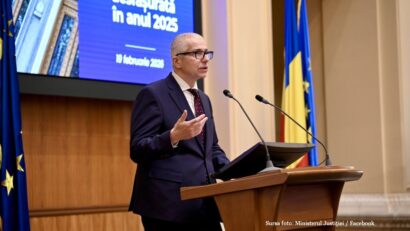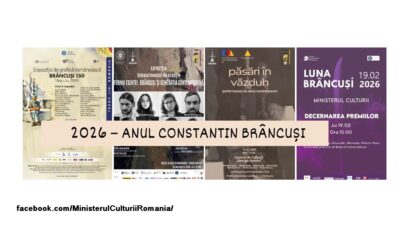Strategy against human trafficking
Romania has launched the National Strategy for Combating Human Trafficking, an area in which it has been harshly criticized in international reports in the past.

Daniela Budu, 14.05.2024, 13:50
Criticized in past years for the inefficiency of its measures to combat human trafficking, Romania launched on Monday the 2024-2028 National Strategy for Combating Human Trafficking which aims to reduce this scourge, identify victims, offer them assistance and punish traffickers. Compared to the early 2000s, the country has made significant progress in its effort to combat human trafficking, both in creating the legal framework and in providing the necessary institutional organization, but there are still things to be done, according to those who participated in the launch.
According to the Interior Ministry, the Strategy is built on four pillars: prevention, punishment, protection and partnership. At the same time, it offers “a clear framework for action aimed at improving the capacity of all structures involved in combating human trafficking”. In a summary of the Strategy launched on Monday, the Interior Ministry said that there is a small number of specialized services for the assistance and protection of victims, including minors, cooperation between public and private institutions to ensure assistance to victims is difficult, and the funds allocated are insufficient. The US State Department’s most recent annual report on human trafficking last summer noted that Romania did not meet minimum standards in the fight against human trafficking.
The document also showed that the judiciary, investigators and child protection authorities in Romania were rather “on the side” of the traffickers and, at the same time, were extremely harsh with the victims. Another report, published this year by the International Justice Mission, an international organization that fights against the vulnerability of victims of human trafficking, pointed out that the legislative changes in the field “were not carried out in a coordinated manner by reporting on the problem of human trafficking, but, rather uncorrelated”. The situation is also recognized by Prime Minister Marcel Ciolacu who says that, “unfortunately, Romania is also on the map of human traffickers, being recognized for almost 20 years as one of the main source countries for exploited victims in Europe”. According to the data of the National Agency Against Trafficking in Persons (ANTIP), since the establishment of the agency in 2005, in 19 years, 19,000 victims of human trafficking have been registered in Romania and there have been over 4,000 convictions. In the first three months of the year, 173 people were investigated for crimes related to human trafficking.
In the message sent on the occasion of the launch of the Strategy, the Prime Minister also said that the official statistics from recent years show that “over 500 Romanian citizens are identified as victims annually, and the figure does not include those who are already being trafficked, who cannot be found in official statistics.” “Furthermore, approximately half of the identified victims are children or young people, something that worries us even more”, the PM also said. The authorities claim, however, that intervention methods have been identified, there are partnerships in place and the necessary resources will be allocated to combat this scourge. (EE)






























